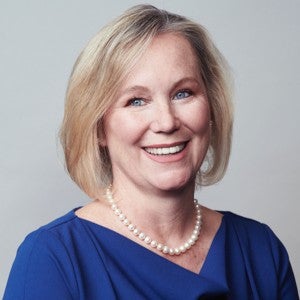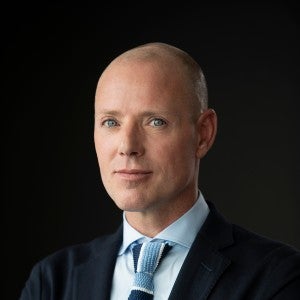The COVID-19 pandemic has forced human resources directors and chief people officers around the world to take immediate action to ensure the safety and overall wellbeing of their employees.
We asked four global HR leaders to share their approach:
Christy Pambianchi, chief human resources officer, Verizon
NORTH AMERICA
 Now, more than ever, the world is relying on our business to stay connected, so we had to quickly adopt new ways of working to transition more than 100,000 employees to work from home while keeping our networks operational. This required a revamp of our operating model, overnight training and redeployment and the introduction of virtual tools to promote cross-team collaboration.
Now, more than ever, the world is relying on our business to stay connected, so we had to quickly adopt new ways of working to transition more than 100,000 employees to work from home while keeping our networks operational. This required a revamp of our operating model, overnight training and redeployment and the introduction of virtual tools to promote cross-team collaboration.
In addition to adopting new ways of working, we enhanced compensation for essential employees whose jobs can’t be done from home. We have also developed curated learning pathways to arm our employees with the skills and strategies they need to succeed under these business-as-unusual circumstances.
We enhanced compensation for essential employees whose jobs can’t be done from home
Right now, our customers are making 800 million calls and sending nine billion texts a day, which is twice the number of calls made on Mother’s Day and as many texts as were made on New Year’s Eve.
The importance of staying connected, be it for a hospital, government agency, family or small business, has required our employees to go above and beyond for our customers. As we look towards the future, we want to hold tight to the resilience we have demonstrated and the agility that has kept us responsive.
Jasmine Hudson, HR director, Mitie
UK
 Our focus has turned to supporting remote working for colleagues who are able to, and ensuring the wellbeing of our people, particularly those on the frontline.
Our focus has turned to supporting remote working for colleagues who are able to, and ensuring the wellbeing of our people, particularly those on the frontline.
We’ve put several initiatives in place to help our colleagues maintain their physical, mental, emotional and financial wellbeing during this difficult time. For example, we’ve made counselling available for all employees affected by the pandemic, as well as for the families of those who have very sadly died in service.
We’re also encouraging all our employees to maintain a healthy work-life balance by avoiding work-related communications out of office hours, taking regular breaks and time off when possible, and encouraging flexible working.
We’ve made counselling available for all employees affected by the pandemic
Continuous, supportive, informative and engaging employee communication has never been more important, and so we have implemented weekly chief executive and HR communications to all colleagues, covering critical topics such as personal protective equipment and access to testing.
Our immediate focus is planning for the new ‘normal’, including how we will return to our offices and how and when our furloughed population will return to work. This involves issues such as managing social distancing in the workplace, ongoing COVID-19 testing of employees and how we balance the ratio of office-based and home-based workers.
Arne-Christian van der Tang, chief HR officer, TomTom
EUROPE
 One of our values is ‘We care’, so we decided early on during the pandemic that everyone should work from home, irrespective of their role or location. My focus has therefore changed significantly, from creating a great office environment and work life to now being responsible for 5,000 workplaces and individual experiences, including employees’ safety, emotional wellbeing, engagement and connection with the business.
One of our values is ‘We care’, so we decided early on during the pandemic that everyone should work from home, irrespective of their role or location. My focus has therefore changed significantly, from creating a great office environment and work life to now being responsible for 5,000 workplaces and individual experiences, including employees’ safety, emotional wellbeing, engagement and connection with the business.
We’re now running ‘Ask me anything’ sessions, webinars and workshops, plus a buddy programme for those who feel lonely
Our leadership team has been very visible from day one and, through company-wide check-in surveys with Glint, we’re learning about employees’ needs and concerns. We’re now running ‘Ask me anything’ sessions, webinars and workshops, plus a buddy programme for those who feel lonely. I make it a point to connect with five random ‘TomTomers’ each day, simply to check in with them and find out if there is anything they need.
This pandemic will redefine the way we look at health, work, collaboration, remote teams, social interaction and psychological safety. We’re revisiting our definitions of all those elements and, with all our recent learning at the forefront of our decision-making, we’ll create an even stronger company than before.
Jill Gates, vice president, culture and people, Europe and Asia, Ensono
ASIA
 We’ve done a couple of significant office refurbishments in the last few years, where we’ve had people out of the office quite a lot, working from home and working remotely, as we’ve improved our office environments.
We’ve done a couple of significant office refurbishments in the last few years, where we’ve had people out of the office quite a lot, working from home and working remotely, as we’ve improved our office environments.
It’s always been a situation for us where we’ve encouraged some home working. We have relaxed that considerably and everybody’s now working from home, so it hasn’t been such an upheaval for us as I’m sure it was for some other organisations.
The biggest challenge will be how we return back to some form of office working
I think the biggest challenge will be how we return back to some form of office working. And I think there are lots of hurdles we have to overcome with that. Firstly, we have to be ready to do it when our governments tell us it’s OK to do it across each geography. Secondly, we have to try to overcome some of the psychological challenges that we’ll have, because I think there’ll be a lot of fear among people about returning and about potentially becoming sick.
We have to work on the practical measures we need to have in place to support people through those challenges.
Christy Pambianchi, chief human resources officer, Verizon

Jasmine Hudson, HR director, Mitie






